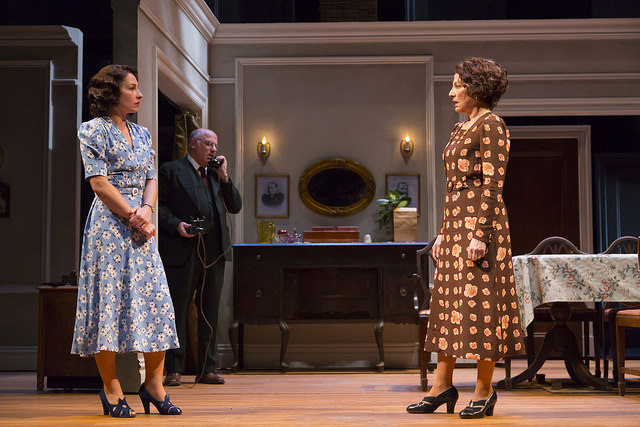Advertisement
The Huntington Carries Clifford Odets' Tune Deftly In 'Awake And Sing'
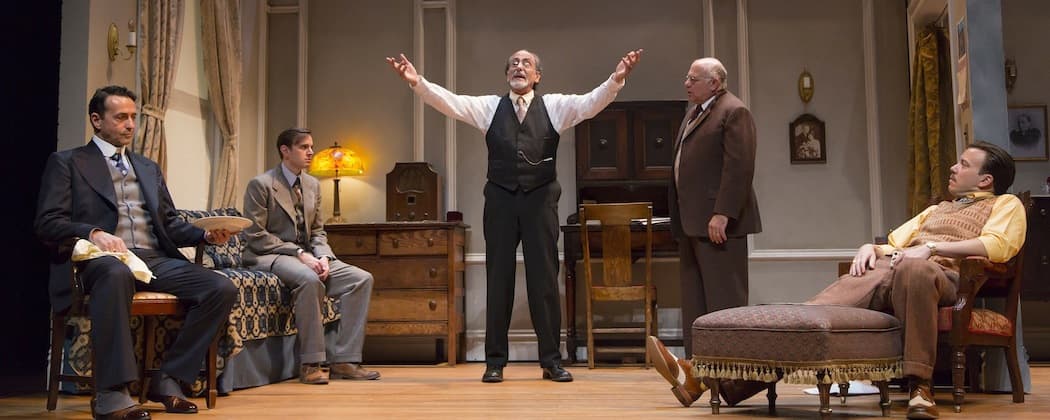
“Awake and Sing!” is one of the great American plays despite having more flaws than any other in the top echelon. The language is dated both in terms of history (‘30s slang) and ethnicity (Yiddishisms), the politics seem passé, it can seem like a standard issue museum piece.
Nevertheless, a good production transcends all that, and the Huntington Theatre Company’s “Awake and Sing” (through Dec. 7) is very good. The virtues are that much more compelling — a stellar cast who settles right into the collective skin of the Berger family and who, under Melia Bensussen’s sympathetic direction, brings to bear the full urgency of Clifford Odets’ play, first performed in 1935.

That urgency hasn’t diminished. It’s summed up by the proclamation of the grandfather, played gloriously by Will LeBow, to the rest of the quarreling family. Quoting an Old Testament he doesn’t believe in, he says, “You who dwell in the dust, awake and sing for joy!”
Is this Odets’ way of saying “follow your bliss”? To an extent, but its richness derives from the specifics of the immigrant experience and the Depression, both of which weigh so heavily on this family. The Bergers are crammed together under one roof, not about to be thrown into the street like some of their neighbors, but not so far from such a fate, either.
Bessie Berger is the matriarch, watching over a father, son, husband, daughter and boarder. She's holding the family together in their cramped Bronx apartment — finding money where she can, trying to ensure the children achieve success without straying from the tribe, and even lying, cheating and stealing if she has to. She sees this as admirable, Odets not so much. She may be one of the first controlling Jewish mother in American literature; she won't be one of the last .
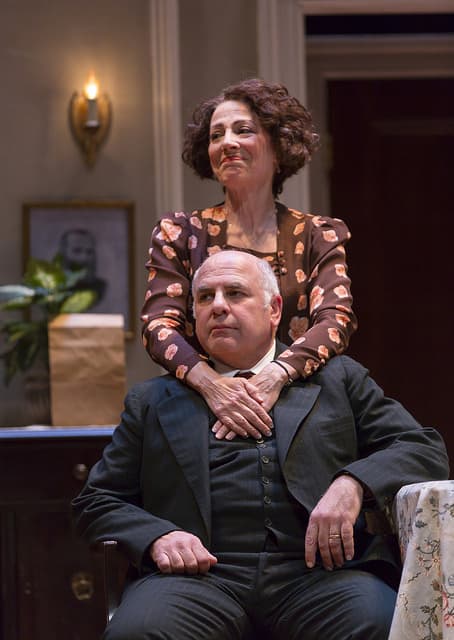
Still, Bensussen and Lori Wilner, who plays her exquisitely, avoid making her Mamalah Dearest. Her foil isn’t one of her children but Jacob, her father. Jacob is the conscience of the play, but LeBow humanizes him as well, making him less stentorian, more humorous. No wonder the children gravitate to him as he rails against tribalism and materialism.
The two wage war not only for the souls of the twentysomething children, but for the correct moral path in Depression-era America. To Bessie it’s a jungle out there and you’d better do what it takes to survive or be a Darwinian victim. Jacob worships the twin gods of Caruso and Marx, art and political rebellion.
He's also preaching: Be alive to the possibilities the world has to offer and sing for joy when you find them. That’s what Odets is preaching as well, but he’s a good enough dramatist that he gives Bessie her due, helped along here by Wilner and Bensussen.
Odets and Jacob are also preaching that one should leave the tribe behind — the stultifying family, the controlling mother, the Jewish community. For those who haven’t seen the play, we won’t say how that plays out.
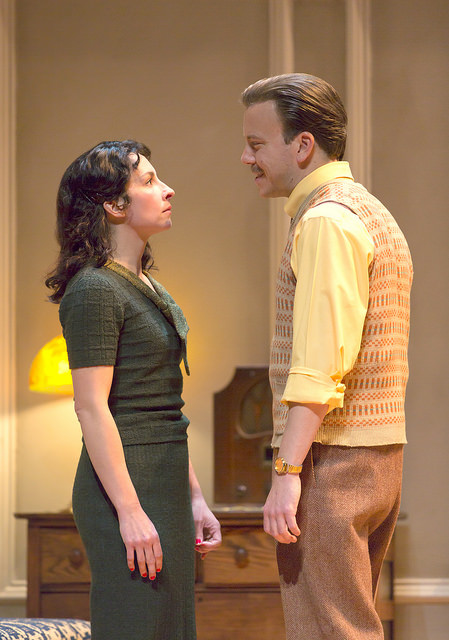
Most of the rest of the cast keep up nicely with LeBow and Wilner. Annie Purcell as Bessie’s daughter, Hennie Berger, and her two suitors, played by Eric T. Miller and Nael Nacer, are particularly impressive. Nacer pretty much plays the same character he did in the Huntington's "The Seagull," only with a Yiddish accent. Michael Goldsmith as the son, Ralph, is a bit of a problem. He’s too whiney and self-pitying, and he doesn't handle the '30s jargon-laced affect as smoothly as his mates. His epiphany toward the end should be the great summing up, but here it barely registers.
James Noone’s set seems off as well. The high-rise construction, with doors on the second and third tier, doesn’t make the apartment seem at all claustrophobic. Ironically, a more intimate set might have done better in that regard than a more open one.

But the final vision is the right one. And it’s hard to argue with Odets’ vision as well, particularly when it’s presented as well as it is here by the Huntington.
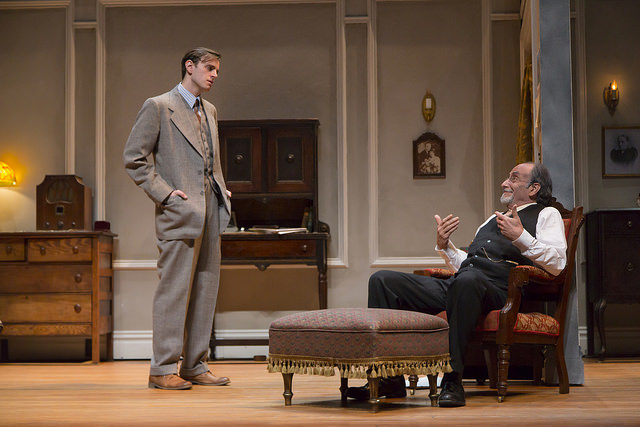
More
- NPR: Theater Companies Mark Odets Centennial
- Ed Siegel talks about “Bad Jews” following the Nov. 19 evening performance at SpeakEasy Stage Company.
